|
Girls
targeted from nine, boys from ten ...
By Sarah Dean
Daily Mail (UK)
June 30, 2014
http://www.dailymail.co.uk/news/article-2674893/Royal-Commission-finds-takes-22-years-survivors-child-sex-abuse-come-forward-average-abuse-begins-9-girls-10-boys.html
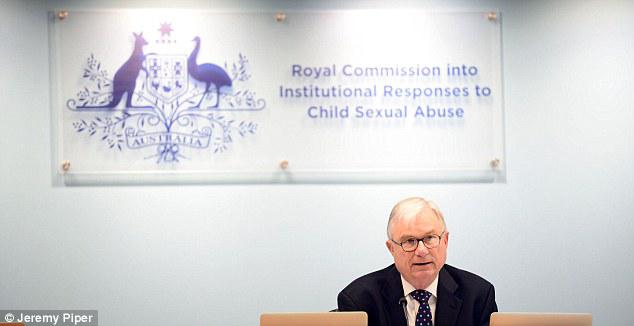 |
| The Royal Commission into
Institutional Responses to Child Sexual Abuse has revealed its
interim report. This pictures shows Commissioner Justice Peter
McClellan in Sydney |
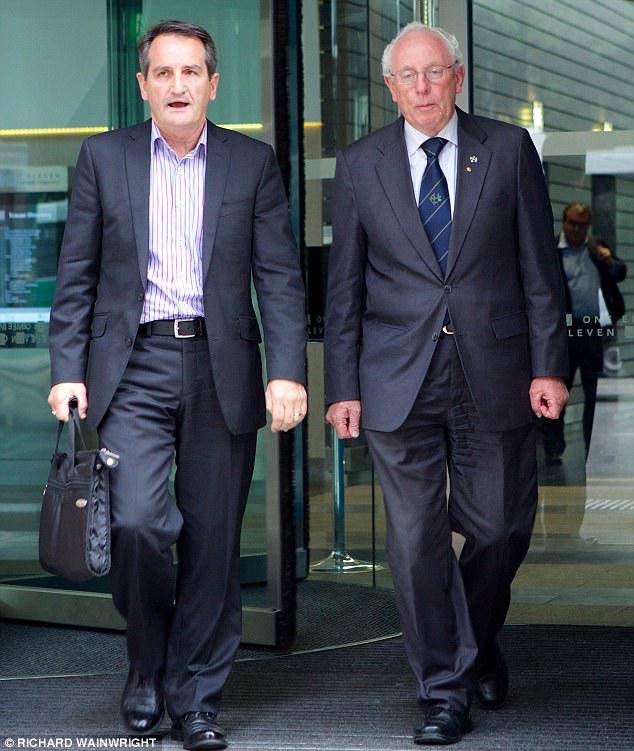 |
| Brother Julian McDonald
Deputy Province Leader of Christian Brothers of Ociania
(right) with Frances Sullivan (left) from the Truth and
Justice Healing Council. Sullivan says the inquiry into
institutional responses to child sex abuse must be given the
time and resources it wants |
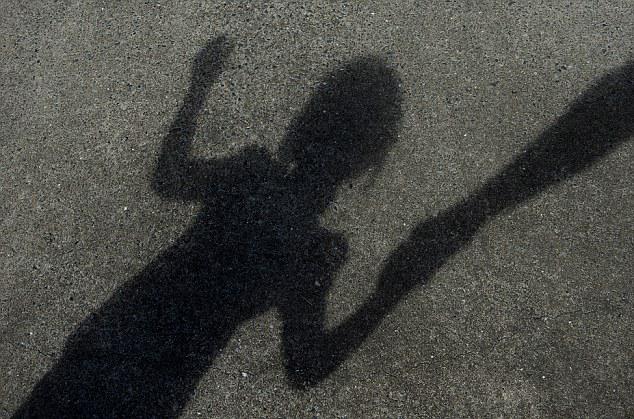 |
| The commission said on
average female victims were nine years old and male victims 10
years old when the abuse started |
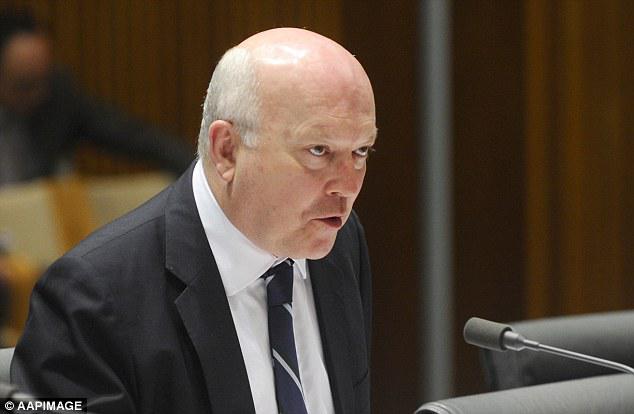 |
| Attorney-General George
Brandis said the interim report made clear the enormous scale
of the task being undertaken by the commission |
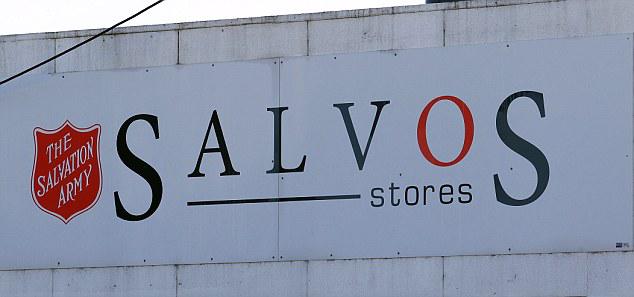 |
| The Salvation Army is facing
a slump in donations to its flagship fundraising drive after
the inquiry's revelations of terrible sexual abuse of children
in its care |
Girls targeted from nine, boys from ten and it
takes 22 YEARS for survivors to come forward: Chilling
statistics of child sex abuse revealed in Royal Commission
report
It takes an average of 22 years for survivors of child abuse to
come forward and many Australians who have been abused still
haven’t spoken out, the Royal Commission into
Institutional Responses to Child Sexual Abuse says.
In its interim report, released on Monday, the commission said
on average female victims were nine years old and male victims
10 years old when the abuse started and that it takes men longer
than women to disclose their abuse.
The
commission, which began its inquiry into institutional abuse on
13 January 2013, said its analysis also showed 90 per cent of
sex abusers are men.
'We understand that
although many people have come forward to the Royal Commission,
it is likely that they represent only a minority of those
abused,’ the commission said.
'Many others are yet to disclose their abuse or, for various
reasons, feel unable to come forward at this time.’
On Monday, the commission which has already been running
for 18 months, urged the federal government to give it more time
and money to finish its job or risk squandering the opportunity
and insulting the victims.
The commission said it
needs another $104 million and an extra two years to do its job
and reach more vulnerable groups.
Truth Justice
and Healing Council chief executive Francis Sullivan says the
inquiry into institutional responses to child sex abuse must be
given the time and resources it wants.
'To
not finish the job properly and completely would be an insult to
all the victims of abuse and one of the greatest lost
opportunities of our generation,’ he said in a statement.
'This is a once in a lifetime chance for the community to
fully understand the devastation of child sexual abuse, its
historic pervasion into so many different institutions and steps
needed to ensure past tragedies are never revisited.’
Attorney-General George Brandis said the interim report
made clear the enormous scale of the task being undertaken by
the commission.
'It is important that those
affected by child sexual abuse and the Australian community as a
whole can learn from the commission's work so far,’ he
said in a brief statement.
The federal government
was considering the request for a two year extension of the
royal commission's December 31, 2015 closing date to deliver
its final report, it said.
The commission’s
investigation into Institutional Responses to Child Sexual Abuse
has many different parts to it.
Firstly, it is
running a series of research projects into child sex abuse,
including a history of abuse offences in Australia and analysis
to identify possible sentencing reform for child abusers.
It is also planning a review of the strengths and
challenges of mandatory reporting requirements in Australia.
Another project currently in the scoping phase is a
review of evidence to explain the relevance of child pornography
and child exploitation material to child sexual abuse in
institutions.
In its two volume interim report,
14 case studies investigated by the commission over the past 18
months are covered.
The report includes the
personal stories of 150 people who shared their experience of
abuse by coming to a private session or providing a written
account.
The commission has held hearings across
Australia into how religious, educational and youth institutions
responded to allegations of abuse, in some cases dating back
decades.
The report says by the end of 2015 the
Royal Commission will have conducted up to 4,000 private
sessions but unless it is extended for two additional years it
will not be able to hold a private session for anyone who
contacts them after September this year.
'This will deny many survivors of the opportunity to share
their experiences with us, in particular those from vulnerable
or hard-to-reach groups.’
'We need
another two years to complete the additional 30 hearings we have
identified as essential to fulfill the terms of
reference.’
In one of the scoping phase
projects, school-based child sexual abuse prevention policies
and curricula will be audited and compared with overseas models.
In another, there will be a review of pre-employment
screening practices for child-related work.
A
large project relates to the history of child sex abuse in
Australia, with a review of factors and events linked to
understanding of this form of abuse since the arrival from the
first fleet.
Data from the royal commission's
private sessions with abuse victims will be analysed to assess
characteristics of both victims and offenders and the impact on
victims.
Those convicted of institutional child
sex abuse will be sentenced, possibly to jail terms. The
commission wants to see whether that process can be reformed.
Also under examination will be trial processes and how
evidence can be given by child sexual abuse complainants for use
in court.
The commission has said children can
help design institutions that are safe for them as they have the
knowledge and experience different to adults.
Research into the views of children about their safety from
sexual abuse in institutions has thus been ordered.
The commission is yet to reach a view on a national redress
scheme for survivors.
'We have not yet
reached a view on a national scheme,’ the commission said.
Four Australian states have offered redress schemes for
former residents of child institutions in Qld, WA, Tas and SA.
The schemes have different coverage, eligibility rules,
validation procedures and payment options.
Incomplete data from the Catholic Church's National
Committee for Professional Standards shows Church authorities
have paid more than $43 million to claimants since 1997.
The commission is considering whether it is appropriate
in principal to recommend a national scheme, if its possible to
devise a scheme that's fair to both claimants and
institutions and how that scheme might fit with existing redress
schemes.
'The Royal Commission understands
the importance of this issue to victims and institutions and
will consult widely as our thinking develops,’ the report
said.
Meanwhile, the Salvation Army is facing a
slump in donations to its flagship fundraising drive after the
inquiry’s revelations of terrible sexual abuse of children
in its care.
Donations to the Red Shield Appeal
Doorknock in May are down an estimated 20 per cent this year.
Spokesman Major Bruce Harmer said the evidence heard at
the Royal Commission into Institutional Responses to Child
Sexual Abuse was a key factor.
The church expects
to fall 20 per cent or $2 million short of its $10 million
target for the doorknock held on May 24 and 25.
It also expects to miss the $80 million target of the broader
Red Shield Appeal, which includes corporate and other donations.
|




